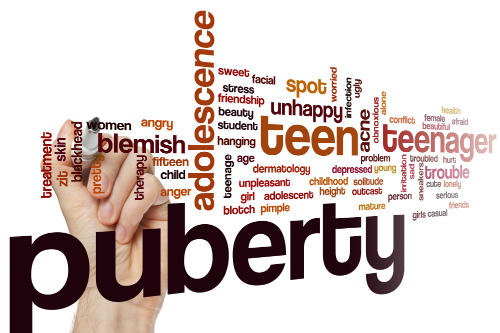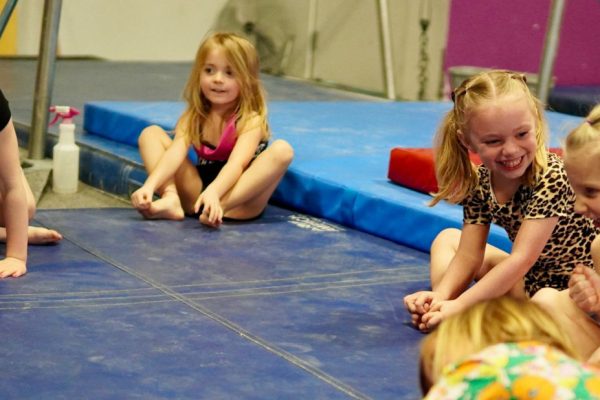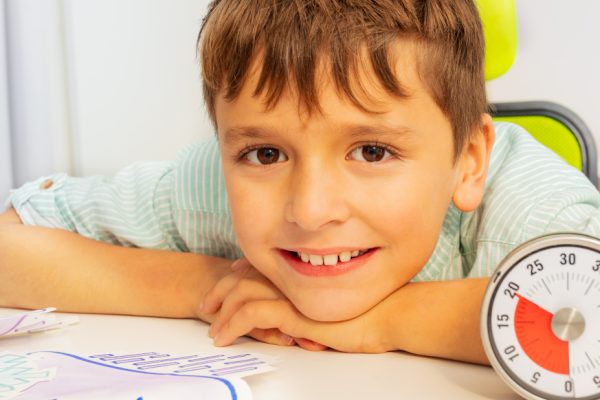
Puberty and children with a disability
Puberty. It’s hard to imagine any word conjuring up more fear in the realm of parenting. Suddenly the terrible twos and toilet training seem like a breeze in comparison to the unchartered territory of the pre- and teen years. It’s a tricky time to manage, even if your child doesn’t have a disability and with the added challenges of our children’s special needs present, all the information we can learn now, the better prepared we’ll be and the smoother sailing it will be.
Well, that’s the plan, anyway.
If you are feeling stuck or worried about how to proceed, or are interested in exploring any of the medical interventions that may make this stage less challenging for your child, please make an appointment with your child’s paediatrician or your general practitioner.
Heather Anderson, Fay Angelo and Rose Stewart, authors of the ‘Secret Girls’ Business’ series have a wealth of knowledge in this arena and we are thrilled to have them share some of their insights on how to manage puberty with your special needs child.
Is puberty different for young people with special needs?
Although many young people with special needs experience delays in achieving developmental milestones, puberty usually occurs at the same age and involves the same changes as typically developing children.
Common concerns of parents and carers of children with special needs
It is normal for all parents to feel anxious about this stage of their child’s development.Parents may worry about hygiene, period management, emotional meltdowns, emerging sexuality, masturbation and inappropriate touching of others. They may also have fears about the increased risk of sexual abuse and the possibility of casual sexual relationships, pregnancy and STIs. Parents may also be concerned about how their child will cope emotionally with puberty changes and their emerging sexuality, now and in the future. Parents and young people can investigate support from Family Planning Clinics, community agencies or their local GP.
Physical puberty changes
These can start as young as eight and continue through the teen years.
Girls
- Pubic hair
- Growth spurt
- Underarm and body hair
- Hip and breast development
- Vulva, vagina and uterus grow and develop
- Vaginal discharge
- Periods
- Ovaries begin releasing eggs
- Muscle development
- Pimples
- Body Odour
Boys
- Pubic hair
- Growth spurt
- Underarm and body hair
- Penis and testicles grow and develop
- More frequent erections
- Sperm production
- Wet dreams
- Shoulders broaden and muscles develop
- Facial hair
- Pimples
- Body odour
Emotional changes
With puberty comes the release of extra hormones which brings about emotional changes for both girls and boys. Emotions might change quickly. Young people might:
- Feel misunderstood
- Argue with family members, teachers or friends
- Want to spend time by themselves
- Feel angry, sad or lonely
Along with these strong emotions come new sexual feelings, making puberty confusing and distressing at times. The positive flip-side to this is that young people may also:
- Become more assertive and be able to have more say in their daily life
- Enjoy spending time with friends and their family
- Develop a sense of humour
- Take pleasure in new interests
- Make gains in independent living skills
Parents may find this time testing and challenging. They need to be conscious of their own self-care. If necessary, investigate options for support with management of challenging behaviours. They may also check out community social and sport activities appropriate for their young person, and possible respite options.
Sex education
Young people with special needs are individuals, with very different skills and learning ability. Parents will need to make judgements about what is the best way to teach their child, and what they will be able to understand. Information may need to be repeated many times before it is grasped and remembered. It is helpful for both parents to be involved in their child’s sex education and to model appropriate respectful behaviour. Teachers, the family doctor or the local family planning clinic can provide support for parents.
Sex education: the benefits
- It will help young people understand and manage puberty changes
- Support development of socially acceptable sexual behaviours
- Provide the language necessary to report abuse
- Increase assertiveness
- Reduce the risk of sexual abuse, STIs and unplanned pregnancy
Helpful tips for parents:
Privacy
Let young people know that topics such as sexuality and periods are private, and conversations about them should only be held with trusted adults. Model appropriate language and respectful, discrete behaviour.
When young people reach puberty, there is a need for more privacy in the home. Family members should knock before entering bathrooms or bedrooms that are occupied. Parents and carers could avert their eyes when private functions are being performed or young people require help with personal care. Teach young people to respect the privacy of other family members. Tell them which places in the home are private for them. Parent’s reactions to masturbation can have lasting effects on the self-esteem of young people. Negative reactions are not helpful. Be careful to respect their privacy.
Social media and internet use
It is important for parents and carers to teach young people how to be safe online. Supervise closely and monitor use of social media. Encourage young people to tell a trusted adult if they receive messages or information that makes them feel uncomfortable.Inappropriate sexual material is readily accessible on the internet. Discuss this with young people, and closely monitor internet use on laptops, tablets and mobile phones. Avoid judgmental comments and punishment, as they can limit helpful discussions about the difference between porn and healthy relationships.
Heather Anderson, Fay Angelo and Rose Stewart, ‘Secret Girls’ Business’ www.secretgb.com
Resources:
SoSAFE! uses a standardised framework of symbols, visual teaching tools and concepts to teach strategies for moving into intimate relationships in a safe and measured manner, and provides visual communication tools for reporting physical or sexual abuse. It provides teachers, trainers and counsellors with skills and simple visual tools to enhance the social, social-sexual and social safety training of people with moderate to severe intellectual disability. Go to www.sosafeprogram.com for more information.
www.e2epublishing.info has free posters to download such as ‘My Body Safety Rules’ and ‘My Early Warning Signs’.






